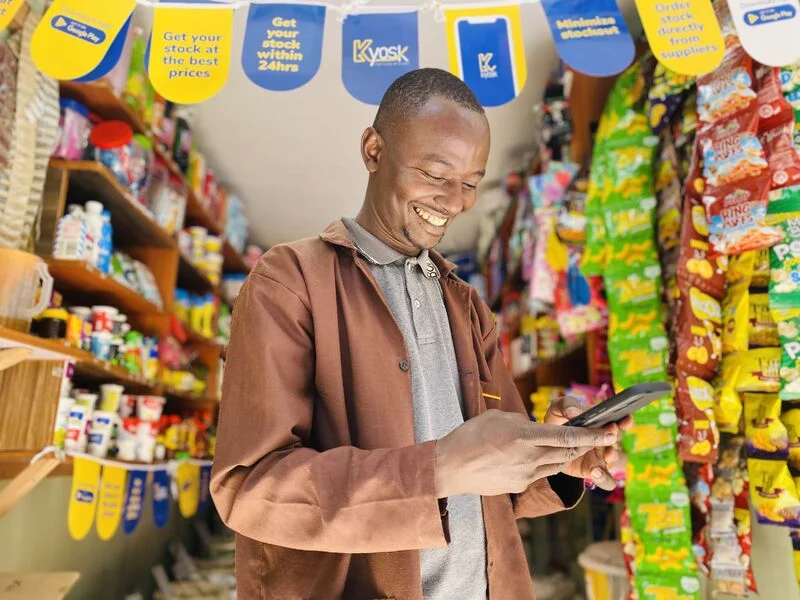While many focus on e-commerce, one African startup, Kyosk, has taken a different approach—digitizing corner shops rather than replacing them. In parts of Africa, these small neighborhood stores are known as Mom and Pop shops or Kiosks in East Africa. These shops serve as essential providers for households, offering basic goods daily.
Kyosk’s strategy centers on empowering these shops by using technology to streamline their operations. During an interview, Gavin Harvett, Kyosk’s Chief Product and Technology Officer, discussed the company’s journey and how it has transformed retail distribution across several African countries.
The Journey of Kyosk: Expansion and Market Presence
Though Kyosk gained public attention recently, the startup has been operational for three years. It began in Nairobi, Kenya, expanding to six locations before growing to 19 locations within the first year. Kyosk has since expanded into Nigeria, Uganda, and Tanzania.
“We’ve been silent for a while, but now we’re ready to be more visible and vocal about our journey,” Harvett said.
How Kyosk Operates: Leveraging Technology
Kyosk utilizes mobile and cloud technologies to manage operations. The company provides a platform and mobile app that connects kiosk owners to suppliers. Through the app, retailers can:
- Place orders for fast-moving consumer goods (FMCGs) like rice, flour, and cooking oil.
- Choose delivery options, including same-day or next-day delivery.
- Access product catalogs with over 100 items, including alternative suppliers for key products.
Kyosk’s operations rely on 45 warehouse locations across Kenya, Nigeria, Uganda, and Tanzania. Orders are routed to warehouses, consolidated, and delivered based on pre-determined routes and delivery windows chosen by the retailers.
Risk Mitigation: Avoiding Inventory Losses
To prevent stock losses, Kyosk uses verification apps to monitor inventory. These apps track:
- Suppliers delivering goods to warehouses.
- Products loaded onto drivers’ vehicles during dispatch.
The responsibility for stock transfers to the driver once verified. Every step of the process is digitized, ensuring transparency and accountability throughout the supply chain.
Challenges Faced by Retailers Before Kyosk
Before Kyosk, small retailers had to travel long distances or close their shops to buy stock from wholesalers, only to sometimes discover the products were out of stock. They lacked visibility into product availability and pricing, resulting in inefficiencies.
Kyosk’s app has solved these challenges by:
- Providing real-time stock visibility and prices.
- Offering multiple supplier options for essential products.
- Enabling retailers to order without leaving their shops and receive deliveries at their preferred times.
Using Data to Enhance Retail Decisions
Kyosk is also exploring ways to help retailers make data-driven decisions. By collecting information on purchase patterns, the company aims to predict demand and recommend products that are popular within the retailer’s community.
Providing Credit to Small Retailers
Kyosk extends credit services to retailers to help them grow their businesses. Retailers can buy inventory on credit with specific repayment terms, giving them flexibility to manage their cash flow.
Future Plans: Deepening Market Presence
Kyosk is currently focusing on expanding within the countries it operates, rather than entering new markets. The goal is to strengthen its presence and dominate local communities.
By digitizing traditional shops, Kyosk is bridging the gap between small retailers and modern technology. The startup empowers kiosks to remain competitive and thrive in a changing retail environment, ensuring they continue to serve as vital hubs for their communities across Africa.




















